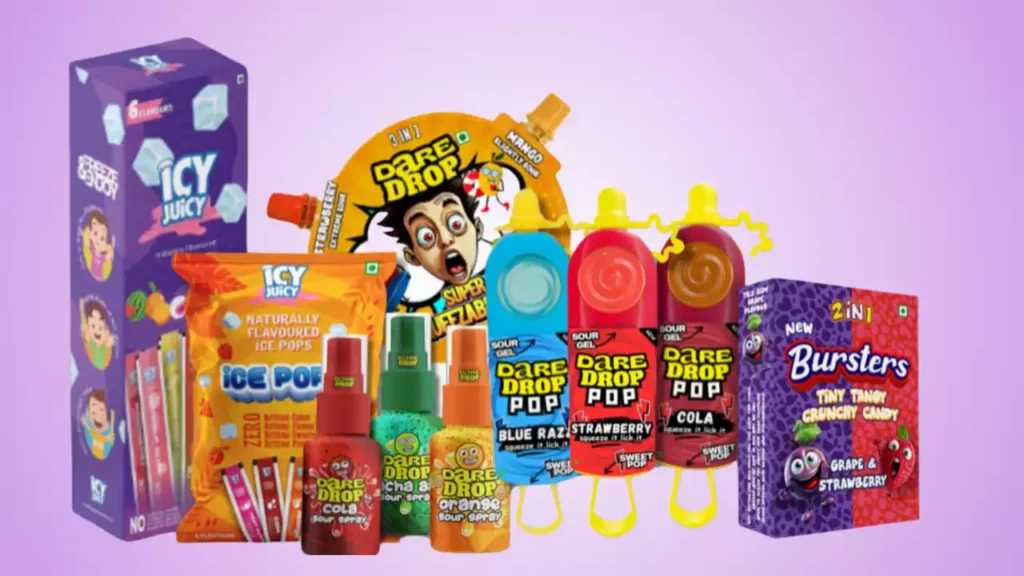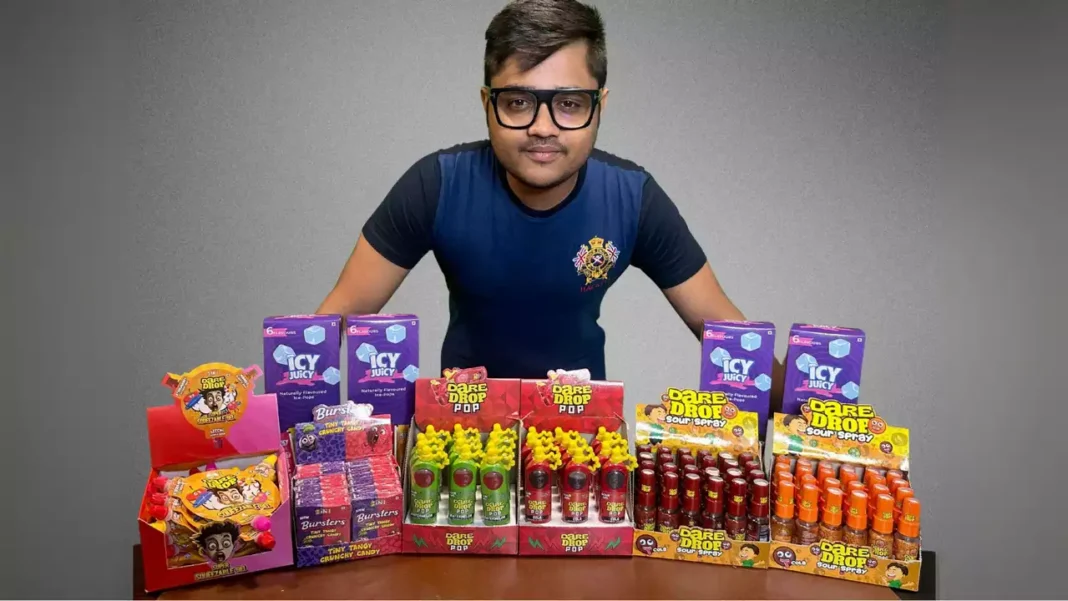Known for their innovative sweet and sour lollipops, Arasha Foods, a young confectionery company based in Pune, is carving out a niche in the Indian market with innovative and affordable products. Priyanshu Bansal, the company’s founder, shared insights into their journey, focusing on their strategic emphasis on general trade over modern trade, and how this choice is propelling their growth.
Priyanshu Bansal’s passion for confectionery began at a young age. “As a kid, I loved and enjoyed indulging in confectionery products, many of which were imports,” he reminisced. His exposure to trade fairs in Dubai and India, courtesy of his father, ingrained in him a deep interest in the F&B space. This early fascination culminated in the establishment of Arasha Foods in November 2021; however, it started operating in January 2022. Our goal was to establish a mass premium confectionery brand offering innovative candy products at affordable costs, filling a significant gap in the market,” Bansal explained.
Innovative Product Offerings
Arasha Foods has distinguished itself by offering unique, innovative products like sour candies and lollipops with a twist. “To thrive in the retail offline sector, you have to stand out from the crowd,” Bansal stated. Their product line includes sour candies and a lollipop with a sweet-sour combination, which have little competition in the market. “Larger players find these categories too small to enter, but for a bootstrap company like ours, these niches are huge opportunities,” he added.

Since its inception, despite the short timeframe of just three months of FY22-23, the brand managed to achieve a turnover of approximately INR 30-35 lakhs with just two products: the icy juicy and another category in the dare drop space.
Whereas, FY23-24, presented a new set of challenges as the company navigated the offline retail space. “We faced several setbacks because the offline market was new to us,” Bansal explained. Coming from a background in real estate and trading activities, the FMCG sector was a significant shift for both Bansal and his father.
Continue Exploring: DS Group targets INR 5,000 Cr sales from confectionery business in 5 years, eyes expansion into tier II and III cities
“We tried many new things and, inevitably, made some mistakes,” Bansal admitted. Despite these hurdles, Arasha Foods managed to generate over INR 2 crores in revenue for FY23-24, even while operating in just a few cities and maintaining a cautious growth approach.
Market Expansion Strategy
He revealed that for their market expansion strategy, the brand has adopted a methodical approach, starting with tier-one cities before moving into tier-two markets. “We enter one city at a time and only move on after we believe we have sufficiently covered it,” Bansal said.
This strategy has proven effective, with surprising insights along the way. For instance, their products perform exceptionally well in Navi Mumbai compared to South Mumbai. “This insight was unexpected, as we initially thought South Mumbai would be our primary market. However, we discovered a stronger demand in Navi Mumbai,” Bansal noted.
Having said that, Bansal attributes much of the brand’s success to their cautious yet strategic focus on general trade. This approach has laid a strong foundation for Arasha Foods, enabling them to navigate the complexities of the FMCG market and set the stage for future growth.
Bansal believes that for a young brand, general trade offers more substantial opportunities compared to the challenging landscape of modern trade.
“At an early stage, it’s challenging to get numbers in modern trade due to high listing fees and stringent conditions,” Bansal explained. This insight has led Arasha Foods to prioritize traditional distribution channels, which now account for 90-95% of their revenue.
“We work through distributors, sales representatives, and sales officers to reach our customers. This traditional approach has allowed us to establish a solid presence and build our brand effectively. Furthermore, our focus has always been on offline general trade. This is because offline engagement, where consumers can physically pick up, try, and taste the product, will ultimately drive growth,”
Continue Exploring: Reliance Consumer Products bolsters confectionery portfolio with acquisition of Ravalgaon’s assets for INR 27 Crore
Bansal then explained why the brand is not so into the modern trade. “The high costs and inefficiencies of modern trade make it less viable for early-stage brands like ours. For example, I once saw an imported gummy brand in a Pune store with a misleading label hiding beef gelatin content. Modern trade often favors imported products without scrutiny, making it tough for domestic brands like ours to compete,” he said.
According to him, in modern trade, the consumer is generally more informed and knows what they’re buying, which simplifies the retailer’s job. However, the challenge lies in negotiating with these retailers.
Future Growth Plans
Looking ahead, Arasha Foods aims to achieve a turnover of INR 5 crores in the current financial year, with 70% of the business expected from general trade.
Additionally, Arasha Foods is also exploring quick commerce platforms like Zepto and Blinkit, planning to launch a guilt-free lollipop made from natural flavors and low sugar content. “Quick commerce holds significant potential for us, and we are actively working on products suited for this segment,” Bansal revealed. While e-commerce hasn’t been a primary focus, they plan to expand into platforms like Amazon and Flipkart to increase product trials.


